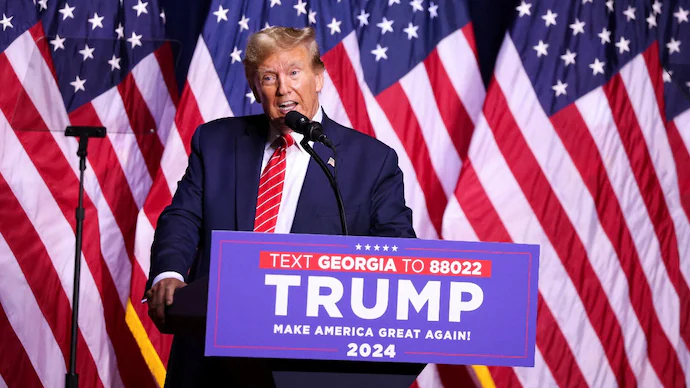Former President Donald Trump has voiced concern over the potential impact on young users of TikTok, as the US House of Representatives moves to pass a significant bill that could result in the popular social media app being banned in America.
The legislation, which passed in the House, presents an ultimatum to TikTok’s parent company, ByteDance, giving them six months to divest their controlling stake or face the app’s blockade in the US. Trump’s remarks come amidst a backdrop of political tension surrounding the app and its Chinese ownership.
Read More: President Biden’s Speech in Milwaukee Raises Eyebrows with Confusing Statements
In response to the House vote, TikTok’s CEO has urged US users to vocalize their support for the platform amid the looming threat of prohibition. The bill’s passage in the House marks a pivotal moment, although its journey to becoming law hinges on Senate approval and the president’s signature.
Trump’s involvement in the TikTok debate traces back to his presidency, during which he attempted to ban the app, alleging national security concerns and citing Chinese surveillance fears. Despite his executive order, the ban never materialized due to legal challenges.
Lawmakers have expressed long-standing apprehensions about TikTok’s ties to China, with concerns over data security and Beijing’s influence driving the legislative push.
ByteDance, founded in China in 2012, faces mounting pressure to comply with US regulations, risking a diplomatic confrontation between Washington and Beijing. Chinese officials have denounced the bill, warning of potential repercussions for US-China relations.
With bipartisan support, the bill underscores bipartisan apprehensions about foreign control of American social media platforms, particularly amid escalating geopolitical tensions.
TikTok, boasting 150 million users in the US, has sought to allay concerns regarding data privacy, emphasizing measures to segregate user data from Chinese authorities. However, questions persist about the company’s compliance with China’s data-sharing laws, further fueling the debate surrounding its future in the US market.



